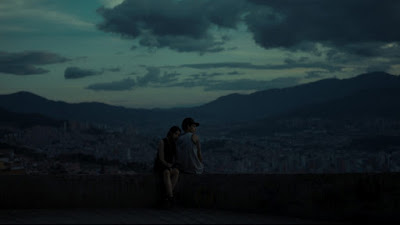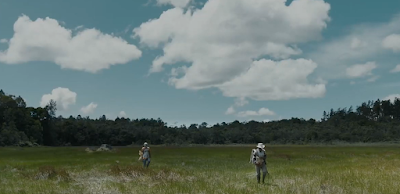Hungary has a rich cinematic history and has produced many stellar films over the past seven decades. However, many classic films from Hungary aren’t as widely distributed or available online as those from other Eastern European countries such as Czech Republic or Poland. For example, Criterion has done a great job with releasing Czech and Polish films but their Hungarian film release stands at just 1. And this solitary title only came recently in March 2022 with Márta Mészáros’s brilliant Adoption. Thankfully, Kino Lorber has more Hungarian titles on offer and their upcoming release of 6 Miklós Jancsó films is certainly welcome. In addition, a lot of these Kino Lorber Hungarian titles are available online via kanopy.com. In my case, I have two labels in UK to thank for seeing some classic Hungarian films: Artificial Eye’s release of Béla Tarr’s Sátántangó and Second Run. Still, for the most part, it is tough to stream Hungarian films online. There was a brief period of few months in 2020 when Hungary's National Film Institute showcased 40 classic films for free online. I missed seeing these films in 2020 although some of them are still available online on You Tube or Vimeo but without English subtitles. However, the Eastern European Movies website has a selection of these films available to stream with English subtitles for a fee.
The availability of these films via the Eastern European Movies website still doesn't end up covering all the films tabulated by Hungarian critics as the best films ever. There have been two lists of 12 films each put out called the ‘Budapest Twelve’ outlining essential Hungarian films.
In the first case, a list was put out in 1968 for top 12 Hungarian films from 1948 - 1968.
Frigyes Bán: Treasured Earth
Miklós Jancsó: The Round-Up
Zoltán Fábri: Merry-Go-Round
András Kovács: Cold Days
Félix Máriássy: Budapest Spring
Zoltán Fábri: Professor Hannibal
Imre Fehér: In Soldier's Uniform
Károly Makk: The House Under the Rocks
Ferenc Kósa: Ten Thousand Days
István Gaál: Sodrásban
Márton Keleti: The Corporal and the Others
István Szabó: Father
There was a New Budapest Twelve list put in 2000.
Miklós Jancsó: The Round-Up
Károly Makk: Love
Zoltán Huszárik: Szindbád
István Szőts: People of the Mountains
Géza Radványi: Somewhere in Europe
Péter Gothár: Time Stands Still
István Székely: Hyppolit, the Butler
Zoltán Fábri: Merry-Go-Round
András Jeles: Little Valentino
Ildikó Enyedi: My 20th Century
István Szabó: Father
Zoltán Fábri: Professor Hannibal
I have only seen half of the above 2000 list so I still have some work to do. Although, one glaring omission from the above list gives me pause. There isn’t a single title by Béla Tarr. By 2000, he had directed 8 films including Sátántangó. Werckmeister Harmonies was released in 2000 so perhaps if that was not seen, then surely 7 of his titles of would have been considered. This omission doesn’t seem like a mistake.
In András Bálint Kovács' book ‘The Cinema of Béla Tarr’, Kovács references the lack of Tarr’s films in the 2000 list and elaborates:
“But the discrepancy between the appreciation of Tarr’s films on the international and on the national level is striking. And I am not talking about the discrepancy between an elite’s taste and the popular taste. This would be obvious and needs no explanation. What I am talking about about here is a discrepancy within a Hungarian art-film audience, which right from the appearance of the Tarr style in 1988 became divided about its value.” page 172, ‘The Cinema of Béla Tarr’, András Bálint Kovács
This gap between directors who are popular locally vs internationally isn’t isolated to Hungarian cinema but takes place in many other nations as well, where some directors find much more appreciation internationally as opposed to locally. Some examples such as Carlos Reygadas (Mexico), Apichatpong Weerasethakul (Thailand) and Lav Diaz (Philippines) come to mind while a handful of Indian directors do well at international film festivals yet hardly ever get their films shown locally.
While I still have some catching up to do for Hungarian films, here is my current list.
Top 10 Hungarian Films of All Time
1. Sátántangó (1994, Béla Tarr)

Béla Tarr’s almost 7.5 hour Sátántangó is a cinematic wonder. The film is hypnotic and an immersive experience which showcases the best elements of Tarr’s cinema: long takes, sweeping camera movements, harsh realism, artistic compositions and unforgettable sounds (howling winds, relentless rain).
2. Adoption (1975, Márta Mészáros)
It is easy to see why this is the first film by a woman to win the Golden Bear at the Berlin Film Festival. The film’s creative camerawork brings the material alive and lends a high degree of intimacy with the characters.
3. The Round-Up (1966, Miklós Jancsó)
The setting is 1880s Hungary but the abstract depiction of events has parallels in our contemporary world. This was also true back in 1966 when the film came out as it echoed 1960s Hungary and also implied events in Hungary during WWII. This is because the film shows how power is held and abused while highlighting those who will do or say anything to survive.
On another note, the film’s set coupled with the discussions remind me of the morality battles shown in Glauber Rocha’s parched Brazilian landscape.
4. The Fifth Seal (1976, Zoltán Fábri)
A dizzying film packed with philosophical ideas some of which will always be relevant due to how people align with differing ideologies.
5. The Witness (A tanú, 1969, Péter Bacsó)
Banned for over a decade in Hungary, Bacsó's wicked satire about communism is also a rare humourous film on this list. The Witness shows how the changing political situation also changes what is acceptable behaviour and what is deemed appropriate. Unfortunately in the film, József Pelikán (Ferenc Kállai) finds himself on the wrong side at all times. The film also features the famous Hungarian director Zoltán Fábri playing a politician.
6. Current (Sodrásban, 1964, István Gaál)
István Gaál’s Current has a different look and feel from the other Hungarian films on this list. The depiction of friends spending a lazy afternoon swimming initially evokes French cinema. However, when one of the friends disappears, the introspection that the others go through feels like something out of Michelangelo Antonioni’s films.
7. On Body and Soul (2017, Ildikó Enyedi)
Ildikó Enyedi won the Golden Bear at Berlin for this smart film which depicts our isolated contemporary society where real connections are hard to come by.
Enyedi’s film My 20th Century was named on the 2000 'Budapest Twelve' list but I prefer On Body and Soul instead.
8. Kontroll (2003, Nimród Antal)
A wild film that follows the lives of the Budapest underground subway metro staff on their daily routines. The humorous first half looks at the insanity, the male power games, the inner turmoils, and hilarious passengers but the second half shifts gears and explores the shades of darkness lurking beneath the surface.
9. Angi Vera (1979, Pál Gábor)
Using the main character Vera (Vera Pap) as a lens, the film shows how one can assimilate in a party structure and convince leaders of their dedication to the cause. In addition, one can use the examples in the film to extrapolate how easy it would have been for neighbours to turn on each other not only in Hungary but across multiple regions (Eastern Europe, Latin America, Middle East to name a few) over the last few decades.
10. The Turin Horse (2011, Béla Tarr/Ágnes Hranitzky)
Béla Tarr and Ágnes Hranitzky craft their unique end of the world scenario with a few bare essentials: an old man, obedient daughter, rebel horse, untrustworthy visitors, an angry wind, potato, bucket, well, table, chair and a window. The film features an array of reverse and sideway shots that manage to open up space in a confined house setting.
Honourable mentions (alphabetical order as per English titles):
The Falcons (1970, István Gaál)
Mephisto (1981, István Szabó)
Son of Saul (2015, László Nemes)
Son of the White Mare (Fehérlófia, 1981, Marcell Jankovics)
Werckmeister Harmonies (2000, Béla Tarr/Ágnes Hranitzky)





